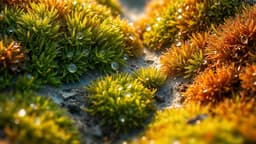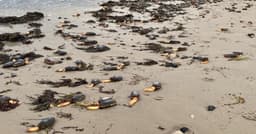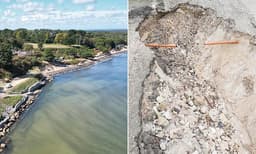Home / Environment / Citizen Scientists Sound Alarm on Dorset's Polluted Waterways
Citizen Scientists Sound Alarm on Dorset's Polluted Waterways
16 Nov, 2025
Summary
- Only 15% of Dorset's rivers in good ecological health
- Aquatic insects, "canaries of the river", sensitive to pollution
- Neonicotinoid pesticides from pet treatments contaminating rivers

As of November 16th, 2025, Dorset's rivers are facing a severe ecological crisis, with only 15% in good health according to the Dorset Wildlife Trust (DWT). The situation is particularly dire for aquatic insects, which volunteers describe as the "canaries of the river" - sensitive indicators of water quality.
Volunteers have been conducting monthly surveys of Dorset's waterways since last year, and their findings paint a troubling picture. The buildup of everyday chemicals, known as "diffuse pollution," is taking a heavy toll on river ecosystems. Of particular concern are neonicotinoid pesticides, which have been detected in Dorset's rivers and streams at levels exceeding safe limits for wildlife.
These toxic chemicals are often found in flea and tick treatments for pets, and many owners are unaware of the harm they can cause. When pets drink from or bathe in contaminated waters, the chemicals are deposited through their waste, seeping into the soil and waterways. "It's really detrimental to wildlife," says DWT's Hannah Divine. "A lot of aquatic insects are really sensitive to any forms of pollution."
With the health of Dorset's rivers and the creatures that depend on them hanging in the balance, citizen scientists are sounding the alarm and calling for action to address this pressing environmental issue.




